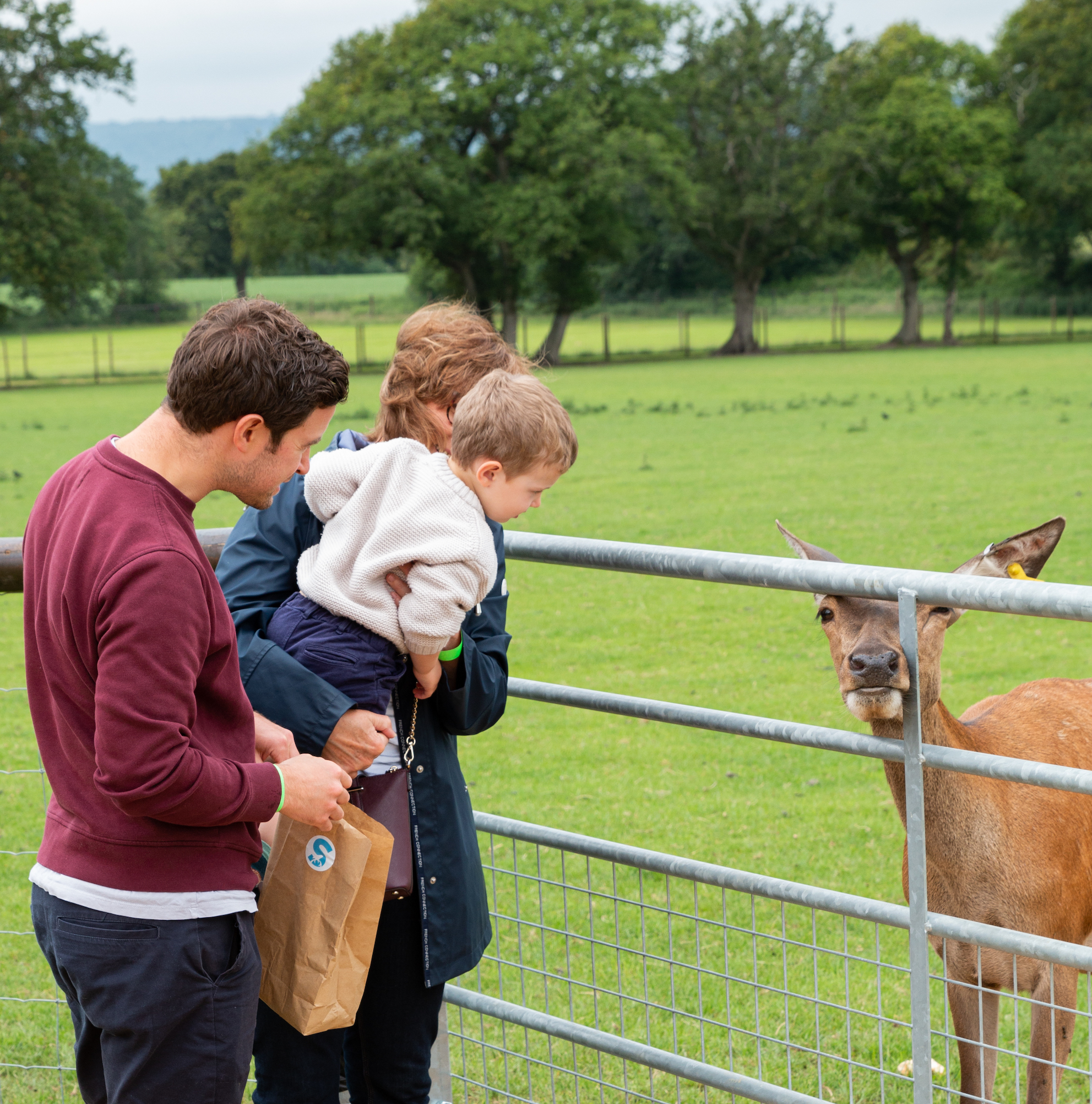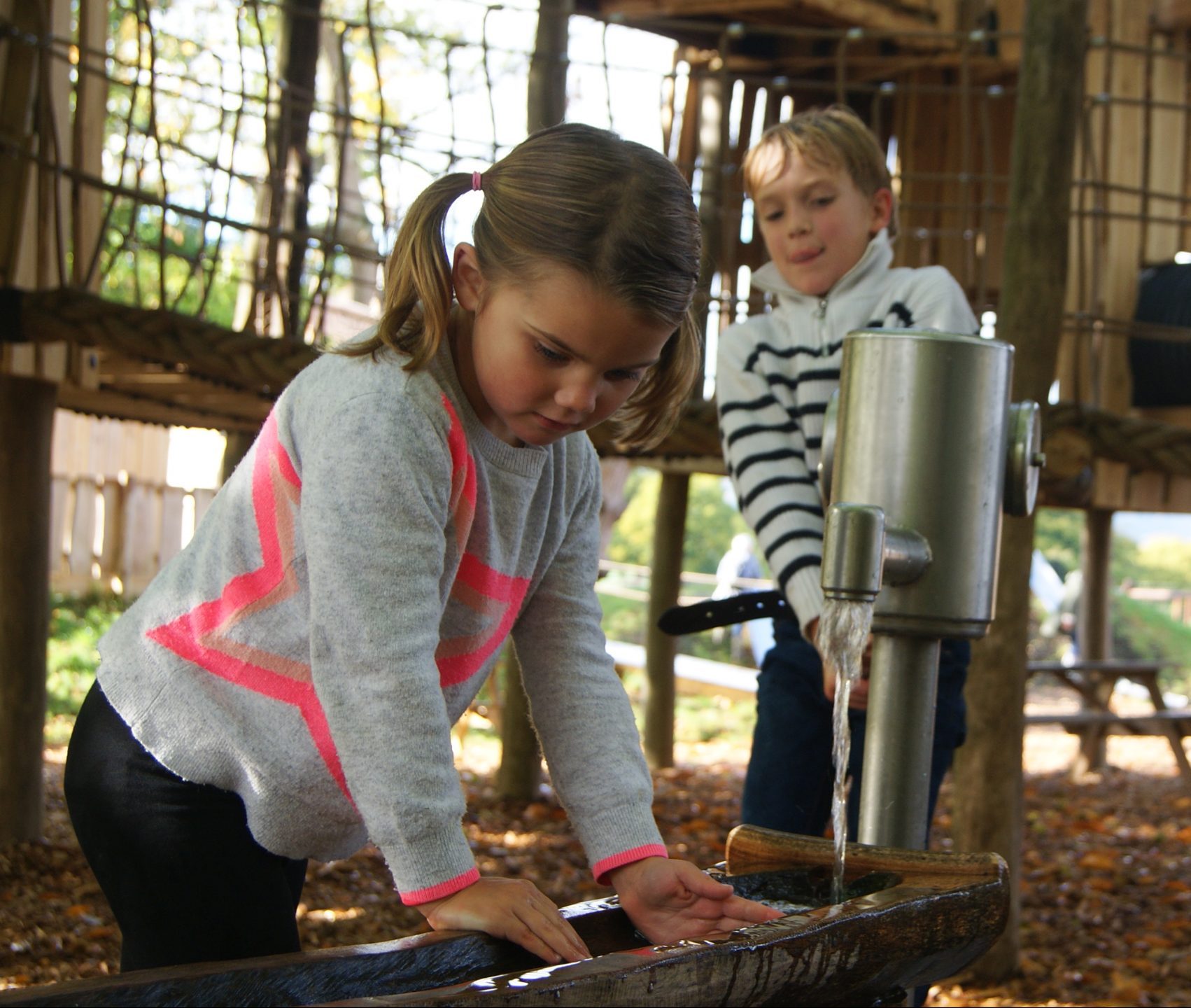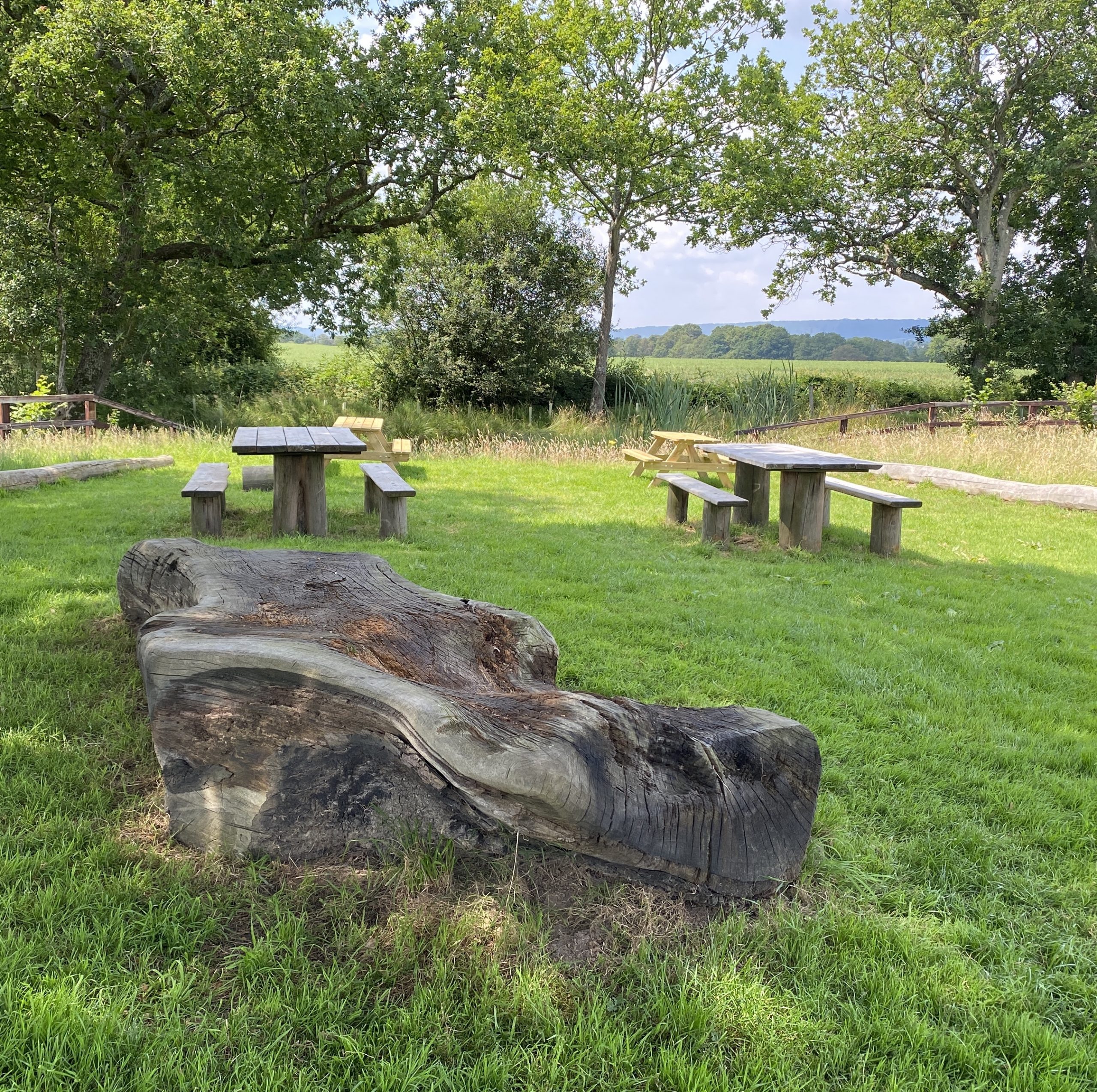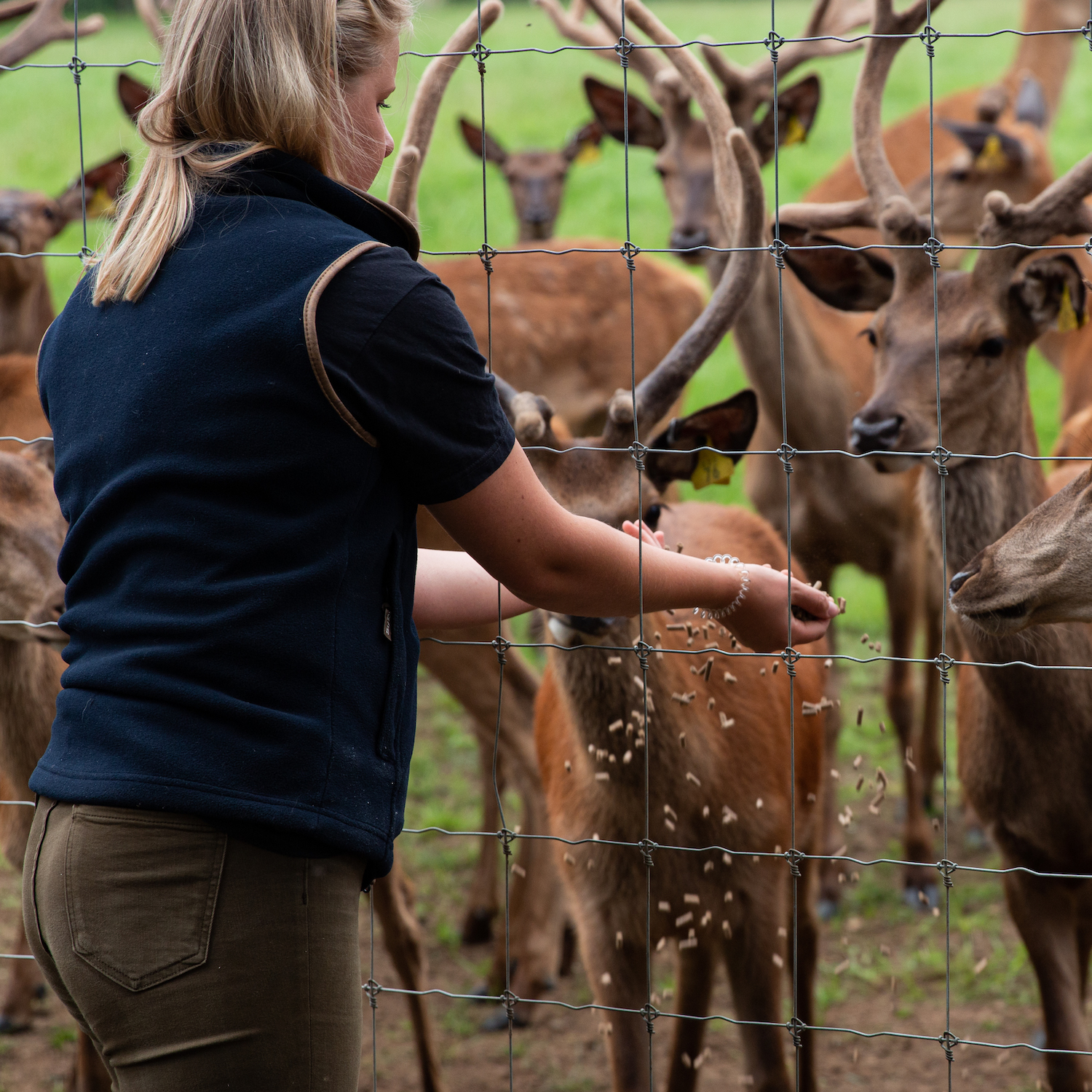Sky Park Farm is a real working farm, offering authentic insights into life on a busy farm devoted to deer. You’ll be able to stroll through the ‘races’ – fenced paths linking our fields – where you can get close to our herds.
In spring and early summer you may see calves, born, like Bambi, with large white spots as camouflage against predators in the wild. During most of the year, you’ll note that our hinds and stags lead separate lives, the males sticking together in loose bachelor groups.
Whenever you visit, you’ll be in the heart of the South Downs National Park, surrounded by lush farmland stretching down to the banks of the River Rother. If you’re feeling energetic, follow our trail and take a riverside stroll. If not, simply find a serene spot to admire the deer.



